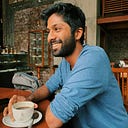Aboard the EN 477 Metropol 2 Train
Conversations on the overnight from Prague to Budapest
It’s midnight in Prague. I walk into a cabin that has two rows of three seats each, none of which fold or recline. I stuff my backpack and coat in the rack above my seat and do an elaborate foot shuffle to avoid stepping on the shoes of the woman across from me. This time yesterday, I was in Seattle. My jet lag’s severe, and my feet feel trapped in shoes that are a size too small. I think about the ticket-seller who promised me a sleeper berth, and the saleswoman at the shoe store who convinced me that I just had to walk it out, and a loud sigh of “FUCK FUCK FUCK” escapes me. The woman across looks disgusted. Oh sleep, where art thou?
It’s 3 a.m. I fall in and out of sleep and eventually wake up for good when the woman across from me hustles out with her two daughters. I look around, disoriented. “We’ll reach Budapest next week,” jokes the only passenger left in my cabin. He is probably in his mid-fifties and looks like a bald, bearded Einstein. He stretches his legs and rests his arms on the purple upholstery. “This is just Brno. Long way to go,” he says.
I step out of the cabin. Fellow sleepless travelers stand in the hallway staring out at the darkness. I take my place in the crowd next to a man in his late twenties. He traces on a wall map of central Europe the route we are on.
“Are you heading to Budapest?” I ask him.
“Yes,” he says.
“Do you live there?”
“No, I live here,” he says, moving his finger up from Budapest to Liberec. “My family and girlfriend are in Budapest.”
“It can be tough living far from home.”
“Yes, but then there aren’t many jobs in Hungary for guys with English degrees,” he laughs.
“Ah, what do you do in Liberec?”
“I teach English. Mostly Neil Gaiman and Agatha Christie,” he says. “Where are you from?”
“I grew up in India, but I live in the US now.”
“And how long are you visiting for?”
“I’m in Budapest for a day, and then I take the overnight train back to Prague.”
“Prague is great.”
“What about Budapest?”
“Budapest is a poorer city, a tougher city than Prague. I used to live in a college town in Finland when I was working on my PhD, and I met more assholes within minutes of arriving in Budapest than I did in all my time in Finland.”
It’s 7 a.m. My stomach rumbles. If I were on a train in India, the morning would have started with a small cup of coffee poured out of a large but portable stainless-steel container by a quick-talking local moving swiftly between compartments.
It’s not quite the same in central Europe. Compared to an Indian train, the one I’m on feels terribly quiet and sterile. The hallway outside is empty, too. The nocturnal crowd must have found sleep at last. I look over at my cabinmate, who stares out his rain-stained window. Water droplets and a world-weary face stare back at him.
“Do you mind if I take a picture of you?” I ask.
He turns to look at me with a knowing smile. “You want a picture of a local,” he says with an emphasis on local. One more in a long line of backpackers searching for stories to take back home. My hands shake as I click and my camera display shows an unfocused picture of the old man in his thick flannel shirt.
“Do you live in Budapest?” I ask.
“Yes. Where do you live?”
“The US.”
“Where in the States?”
“Seattle.”
“Ah. I used to live in LA,” he says.
“You did?”
“I lived in LA for six years. From ’99 to 2005.”
“How did you like it?” I ask.
“LA is home. This is bullshit.”
“This . . . Budapest?”
“Ya . . . Budapest is bullshit,” he says.
“Why did you leave LA?”
“My visa expired, and I was deported.” His face hardens. “It’s tough here, you know. I’m going to the hospital today to give blood because my friend’s brother needs it and the hospital has none. This is twenty-first century Europe, and a hospital in Budapest has no blood.”
“Sounds like I should get on the first train back,” I say with a nervous smile.
“Well, it’s not that bad,” he laughs. “What are you going to do in Budapest?”
“What do you think I should do?”
“Do you have a piece of paper?”
I hand him my notepad and grab the seat beside him.
“So this is the Hungarian Parliament,” he says, marking a point on the paper, and begins to draw a map of places for me to visit.
It’s 9 a.m. The train comes to its final halt, and my cabinmate helps me buy a metro ticket into the city. We get on the metro — the hospital he’s heading to is in the same direction as the Parliament — and I can feel the jet lag kick back in.
“You need to get off at the next stop,” he says.
“Thank you . . . I’m sorry, I never asked you your name.”
“Béla,” he says.
“Thanks, Béla.” I shake his hand. “I hope things go well for your friend’s brother.”
The doors of the metro open, and I make my way into Budapest. It is a chilly Saturday, and a heavy fog has descended over the city. A huge yawn escapes me as I situate myself with Béla’s hand-drawn map and trace the route I plan to take.
I hope there’s a coffee shop on the way.
